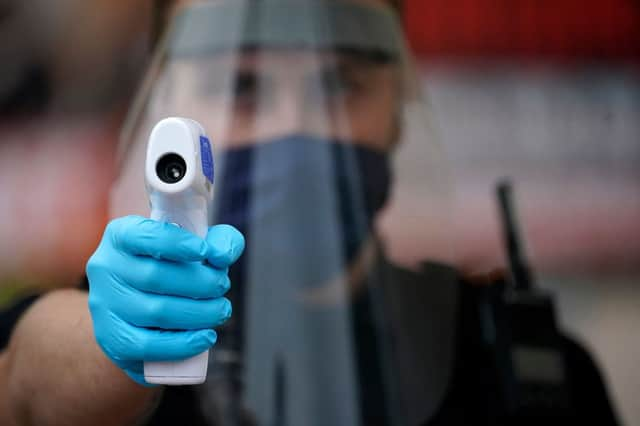Study finds Pfizer vaccine recipients have lower antibody levels against Delta variant


New data has suggested that people who have had the Pfizer BioNTech vaccine have lower antibody levels targeting the Delta coronavirus variant - first discovered in India - than they do against other variants.
The research also suggests the levels of these antibodies are lower with increasing age and that levels decline over time.
Advertisement
Hide AdAdvertisement
Hide AdResearchers say their results may bolster the case for a “booster” programme of vaccinations in the autumn.
The new laboratory data from the Francis Crick Institute and the National Institute for Health Research (NIHR) UCLH Biomedical Research Centre also supports current plans to reduce the dose gap between vaccines.
The study found that after just one dose of the Pfizer jab, people are less likely to develop antibody levels against the Indian (B.1.617.2) variant, also known as Delta, as high as those seen against the previously dominant Kent variant (B.1.1.7) also known as Alpha.
However, researchers pointed out that the level of antibodies by themselves don’t necessarily predict the effectiveness of a vaccine.
Advertisement
Hide AdAdvertisement
Hide AdLower antibodies may still provide protection against Covid-19, experts have said.
A total of 12,431 cases of the Delta variant have been reported in the UK, with some early evidence suggesting it may lead to an increased risk of hospitalisation. it is now the dominant strain spreading in the country.
Emma Wall, UCLH Infectious Diseases consultant and senior clinical research fellow for the Legacy study, said: “This virus will likely be around for some time to come, so we need to remain agile and vigilant.
“Our study is designed to be responsive to shifts in the pandemic so that we can quickly provide evidence on changing risk and protection.
Advertisement
Hide AdAdvertisement
Hide Ad“The most important thing is to ensure that vaccine protection remains high enough to keep as many people out of hospital as possible.
“And our results suggest that the best way to do this is to quickly deliver second doses and provide boosters to those whose immunity may not be high enough against these new variants.”
Additional reporting by PA.